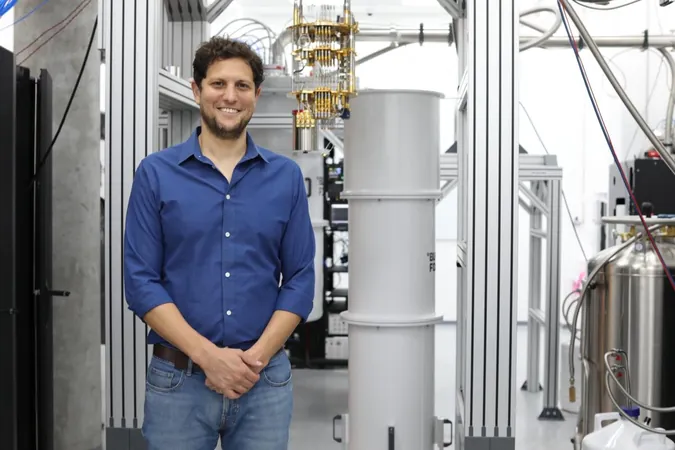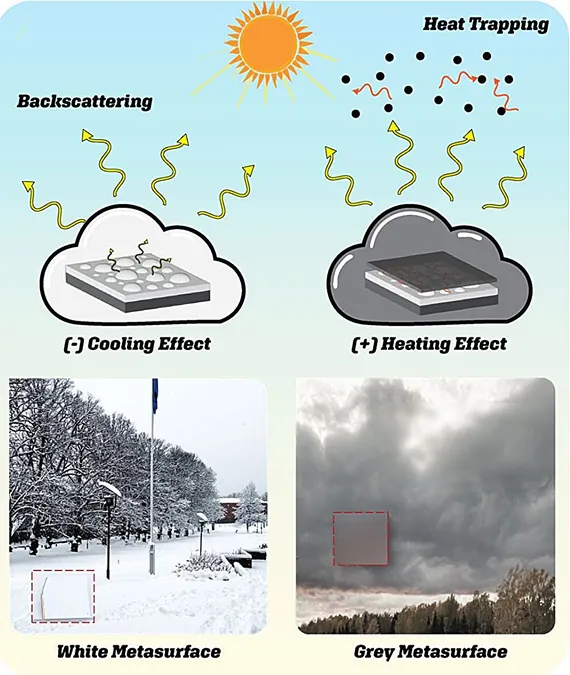
Quantum Leap: Nvidia and Quantum Machines Edge Closer to Error-Corrected Quantum Computing!
2024-11-02
Author: Rajesh
Quantum Leap: Nvidia and Quantum Machines Edge Closer to Error-Corrected Quantum Computing!
In an exciting development for the quantum computing sector, Quantum Machines, a pioneering quantum control startup, has forged a powerful alliance with Nvidia. Their collaboration aims to harness the might of Nvidia's DGX Quantum computing platform alongside Quantum Machines’ sophisticated quantum control technology. While initial updates on the partnership were scarce, recent presentations illustrate that this groundbreaking partnership is poised to accelerate the journey toward a fully operational error-corrected quantum computer, often considered the "holy grail" of this field.
During a recent showcase, the duo revealed a fascinating breakthrough: utilizing a standard reinforcement learning model on Nvidia's DGX platform to enhance control over qubits within a Rigetti quantum chip. This process specifically targets the calibration of “π pulses,” which are critical for managing qubit rotations in the quantum processors.
Yonatan Cohen, CTO and co-founder of Quantum Machines, articulated his long-standing objective—leveraging conventional classical computing engines to govern quantum processors. Previous engines were limited in capacity, but Nvidia’s powerhouse DGX platform changes that narrative, enabling more efficient quantum operations. Cohen emphasizes that while full quantum error correction remains a frontier yet to be crossed, their current work on calibration can significantly improve error rates.
At first glance, one might think calibration is a simple one-off task. However, it’s far more complex, as Cohen explained. "Quantum computers' performance often starts strong but tends to drift as they're used," he noted. By frequently recalibrating through the innovative techniques made possible by this collaboration, the overarching objective is to sustain high fidelity over extended periods—an essential prerequisite for effective quantum error correction.
In contrast to traditional methodologies, where calibration might be static, Quantum Machines and Nvidia are employing dynamic adjustments in nearly real-time, a compute-intensive endeavor. Given that quantum systems are inherently different from one another, reinforcement learning serves as an invaluable solution to these control challenges.
Sam Stanwyck, Nvidia’s group product manager for quantum computing, further elaborated. He noted that as quantum computers expand and improve, numerous bottlenecks emerge, notably in quantum error correction. "Achieving fault-tolerant quantum computing is critically dependent on our capacity to apply optimal control pulses to maximize qubit performance," he affirmed.
The potential impact of improved calibration cannot be overstated. Ramon Szmuk, a product manager at Quantum Machines, illustrated this by stating, “A 10% enhancement in calibration can yield exponential advancements in logical qubit performance.” As such, there is robust motivation to pursue rapid and precise calibration methods.
It’s essential to recognize that this undertaking is merely the nascent stage of their optimization journey. To date, the teams have tested various off-the-shelf algorithms and identified the most effective one, dubbed TD3. The coding for this experiment was relatively concise—about 150 lines—but it’s the extensive groundwork in system integration and software development that enables this breakthrough. In anticipation of cutting-edge applications, the companies plan to develop open-source libraries that democratize access to their innovations over time.
The team’s focus thus far has been on fundamental quantum circuits, but Szmuk is optimistic about applying these techniques to more complex systems. "If we can effectively manage one qubit with one gate, scaling that up to a hundred qubits and thousands of gates is entirely feasible," he stated.
Stanwyck reiterated that while the individual milestone may seem modest, it is a vital step toward addressing some of the most daunting challenges in quantum computing. "Achieving practical quantum computing will demand extremely close integration of advanced supercomputing capabilities, posing one of the toughest engineering challenges," he noted. Their work is laying the groundwork for scalable and modular quantum platforms that hold the promise of solving significant quantum problems.
Looking ahead, Nvidia and Quantum Machines are committed to continuing this collaboration, aspiring to empower researchers with these pioneering tools. With Nvidia set to release its formidable Blackwell chips in the coming year, we can expect even greater advancements in this revolutionary project that could redefine the future of quantum computing! Don't miss out; stay tuned to witness the unfolding of this quantum revolution!



 Brasil (PT)
Brasil (PT)
 Canada (EN)
Canada (EN)
 Chile (ES)
Chile (ES)
 Česko (CS)
Česko (CS)
 대한민국 (KO)
대한민국 (KO)
 España (ES)
España (ES)
 France (FR)
France (FR)
 Hong Kong (EN)
Hong Kong (EN)
 Italia (IT)
Italia (IT)
 日本 (JA)
日本 (JA)
 Magyarország (HU)
Magyarország (HU)
 Norge (NO)
Norge (NO)
 Polska (PL)
Polska (PL)
 Schweiz (DE)
Schweiz (DE)
 Singapore (EN)
Singapore (EN)
 Sverige (SV)
Sverige (SV)
 Suomi (FI)
Suomi (FI)
 Türkiye (TR)
Türkiye (TR)
 الإمارات العربية المتحدة (AR)
الإمارات العربية المتحدة (AR)